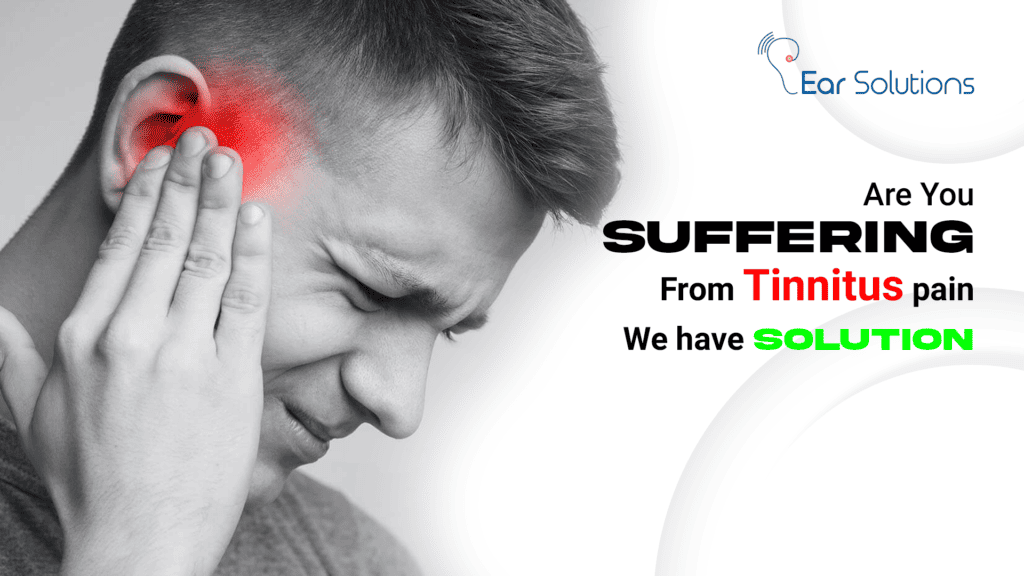Tinnitus is characterized by ringing, buzzing, or hissing sounds in the ears when no external sound is present. It can be a frustrating and distressing condition. While there is no definitive cure for tinnitus, there are various strategies and lifestyle changes that can help manage the symptoms effectively. This comprehensive guide explores different methods to cope with tinnitus and improve your quality of life.
1. Consult a Healthcare Professional:
The first step in managing tinnitus is to consult a healthcare professional or an audiologist. They can conduct tests to identify the underlying cause of tinnitus, which could be related to hearing loss, earwax blockage, or a medical condition. Once the cause is determined, appropriate treatment can be suggested.
2. Sound Therapy:
Sound therapy involves using external noises to mask or distract from the tinnitus sounds. White noise machines, nature sounds, or even calming music can help mask tinnitus, making it less noticeable, especially during quiet moments or bedtime. Many hearing aid machines also have built-in sound therapy features to provide continuous relief.
3. Relaxation Techniques:
Stress and anxiety can exacerbate tinnitus symptoms. Practicing relaxation techniques such as deep breathing, yoga, meditation, or even simple hobbies like reading or gardening can help reduce stress levels, making tinnitus less bothersome. Some people find relief through activities that engage their mind and body, diverting attention away from the tinnitus.
4. Avoid Triggers:
Certain substances like caffeine, nicotine, and alcohol can worsen tinnitus symptoms. Additionally, exposure to loud noises can damage the hair cells in the inner ear, worsening tinnitus. Avoiding these triggers can help prevent the condition from getting worse. When attending concerts or using power tools, wearing ear protection can protect your ears from loud noises.
5. Cognitive Behavioral Therapy (CBT):
CBT is a therapeutic approach that helps individuals change negative thought patterns and behaviors associated with tinnitus. A trained therapist can provide coping strategies, stress management techniques, and relaxation exercises tailored to your specific needs. CBT has shown effectiveness in helping individuals manage tinnitus-related distress.
6. Tinnitus Retraining Therapy (TRT):
TRT combines sound therapy and counseling to help individuals habituate to the tinnitus sounds. A healthcare professional will work with you to develop personalized sound therapy and coping strategies. Over time, the brain learns to filter out the tinnitus sounds, making them less noticeable and bothersome.
7. Alternative Therapies:
Some people find relief from tinnitus through alternative therapies such as acupuncture, hypnosis, or herbal supplements. While the effectiveness of these methods varies from person to person, it’s essential to consult with a healthcare professional before trying any alternative treatments to ensure they are safe and evidence-based.
8. Addressing Underlying Health Conditions:
Tinnitus can be a symptom of underlying health conditions such as high blood pressure, temporomandibular joint (TMJ) disorders, or certain cardiovascular issues. Addressing these conditions under the guidance of a healthcare provider can sometimes alleviate tinnitus symptoms.
9. Support Groups:
Joining a tinnitus support group can provide emotional support and a sense of community. Sharing experiences with others who understand what you’re going through can be empowering and help you cope better with the challenges of tinnitus.
10. Using Hearing Aids:
If hearing loss is associated with tinnitus, using hearing aids can often provide relief. Hearing aids amplify external sounds, reducing the contrast between the background noise and the tinnitus. This can make the ringing or buzzing less noticeable and improve overall hearing, enhancing your quality of life significantly.
Which hearing aid is best for tinnitus?
Choosing the right hearing aid for tinnitus involves finding a device that not only addresses your hearing loss but also provides effective relief for tinnitus symptoms. Among the variety of hearing aids available, several models are renowned for their tinnitus management features. Here’s a closer look at some top contenders:
1. Signia Styletto AX and Signia Pure C&G AX:
Signia hearing aids, specifically the Styletto AX hearing aid machine and Pure C&G AX hearing aid device, incorporate advanced tinnitus management features. They utilize a combination of amplification and sound therapy to address tinnitus symptoms effectively. With personalized sound therapy programs, these hearing machines offer a variety of soothing sounds, allowing users to find the most comfortable and relieving tones. The sleek designs and comfortable fits of Signia ear machines ensure that users can wear them for extended periods, experiencing both hearing enhancement and tinnitus relief seamlessly.
2. Phonak Audeo and Phonak Naida:
Phonak’s Audeo hearing aid device and Phonak Naida hearing aids are equipped with powerful tinnitus management programs. These hearing devices employ a unique blend of amplification and masking sounds to provide relief from tinnitus. Phonak hearing aid machines focus on the clarity of sound while simultaneously offering soothing tones to mask the ringing or buzzing sounds associated with tinnitus. The adaptability of Phonak devices ensures that users experience both excellent hearing aid performance and effective tinnitus relief.
3. Widex Moment and Widex Magnify:
Widex ear machines, particularly the Widex Moment hearing machine and Widex Magnify hearing aid device, are recognized for their superior sound quality and advanced tinnitus management capabilities. Widex utilizes fractal tones and Zen therapy, which create harmonious and relaxing soundscapes. These sounds help individuals habituate to their tinnitus over time, reducing its perceived intensity. The Widex Moment hearing aid series, known for its natural sound processing, delivers an immersive auditory experience, enhancing the overall comfort for users with both hearing loss and tinnitus.
4. Resound Omnia:
Resound Omnia hearing machine stands out for its comprehensive sound therapy features designed specifically for tinnitus management. It offers a wide array of customizable soundscapes, allowing users to select the most calming tones for their tinnitus relief. Resound Omnia’s focus on personalization ensures that users receive tailored solutions that match their unique tinnitus symptoms. The flexibility in choosing and adjusting soundscapes makes Resound Omnia an excellent choice for individuals seeking customized tinnitus management.
5. Starkey Evolv AI:
Starkey’s Evolv AI hearing aid incorporates advanced tinnitus management technologies, including personalized sound therapy and masking options. The device offers various soothing sounds, allowing users to select tones that provide the most relief. What sets Starkey Evolv AI hearing aid machine apart is its integration of artificial intelligence. This feature ensures adaptive and effective tinnitus relief, as the device learns and adjusts its sound therapy programs based on the user’s responses and preferences. This continuous adaptation results in a personalized and comfortable tinnitus management experience.
6. Oticon Opn:
Oticon Opn hearing aid utilizes a combination of amplification and sound therapy to manage tinnitus symptoms effectively. This device prioritizes speech clarity while simultaneously providing relief from tinnitus sounds. Oticon Opn hearing aid machine is lauded for its natural sound processing and advanced noise reduction capabilities. By focusing on enhancing speech understanding in various environments, Opn ensures that users experience clear conversations while benefiting from tinnitus relief.
In conclusion, while there might not be a one-size-fits-all solution to eliminate tinnitus, there are various management strategies available. It’s crucial to work closely with healthcare professionals, audiologists, and therapists to find a combination of approaches that work best for you. With patience, persistence, and the right support, it’s possible to reduce the impact of tinnitus on your daily life and regain your sense of well-being.





